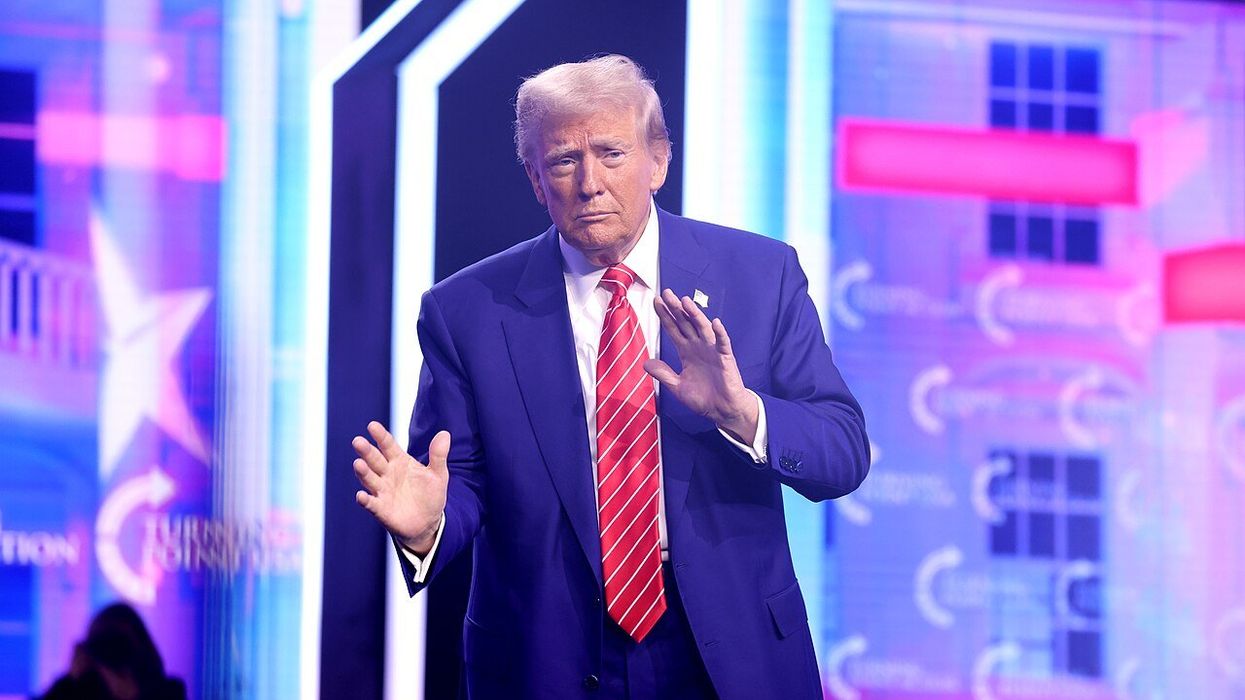How US citizens can combat 'malicious, unjust prosecutions' during Trump’s second presidency

Donald Trump in Phoenix, Arizona on December 22, 2024 (Gage Skidmore)
January 02, 2025 | 09:58AM ETMSN
Over the years, jury nullification has been used in a wide variety of ways in the United States.
The concept refers to jurors rendering a "not guilty" verdict based on their opinion of a law itself, not the evidence. If jurors consider a law flawed, oppressive or unjust, they will "nullify" it — even if they believe the person is guilty.
Jury nullification was used during the 1920s when jurors who opposed Prohibition voted "not guilty" in bootlegging-related cases despite evidence showing the defendant was selling or distributing alcohol illegally. And during the 19th Century, some jurors voted "not guilty" when defendants faced criminal charges for violating the Fugitive Slave Act of 1950.
READ MORE: 'Hot-button issues': GOP state lawmakers view Trump victory as 'mandate' for far-right legislation
Opponents of jury nullification view it as a recipe for anarchy and an attack on the rule of law. And some of them will make their argument by noting that all-white juries, in the past, acquitted Ku Klux Klan (KKK) members of violent racial crimes despite a mountain of damning evidence.
But proponents of jury nullification, from liberals and progressives to right-wing libertarians, often describe the KKK argument as cherry-picking.
In an article published by the New Republic on January 2, Steve Kennedy — network director of the People's Parity Project — makes a case for jury nullification as an anti-injustice tool during President-elect Donald Trump's second term.
"With some calling Luigi Mangione a folk hero for the alleged killing of United Healthcare CEO Brian Thompson," Kennedy explains, "the concept of jury nullification — which has a long history of use in the U.S. as a means of popular resistance to unpopular laws and unjust prosecutions — has been dragged back into the spotlight. But even as the pundit class frets about this jury power being used to free someone undesirable to the ruling class simply because he is popular online, we ought to consider the tactic more broadly."
READ MORE: 'Kitchen-table policies': How Dems can steal this voting bloc back from the GOP
Kennedy continues, "With Donald Trump threatening to weaponize agencies like the FBI and Department of Justice against his political and personal enemies, among other overt vows to corrupt the justice system, jury nullification can be an important way of fighting back, even under a Republican trifecta."
Kennedy argues that jury nullification has a long history as an anti-injustice tool, going back to the 18th Century and the American Revolution.
"During the Vietnam War," Kennedy notes, "juries acquitted many people who avoided the draft. Despite openly admitting to assisting in his patients' suicides, multiple juries nullified prosecutions against Dr. Jack Kevorkian. Even more recently, Doug Darrell, a Rastafarian with no prior criminal record who was caught growing cannabis on his property, was acquitted through jury nullification."
Kennedy adds that with Trump having "signaled his intention to pursue prosecutions of some of his political enemies," jury nullification can be a way to fight back against meritless prosecutions.
"In some red states," Kennedy warns, "librarians face the prospect of criminal charges for circulating banned books. In several states, doctors can face criminal charges for providing gender-affirming care. With the very real prospect of malicious and unjust prosecutions on the horizon, it is important for jurors to understand the power they have in preventing these and other injustices through nullification."
READ MORE: Her mental health treatment was helping — and that’s why insurance cut off her coverage
Steve Kennedy's full article for The New Republic is available at this link.